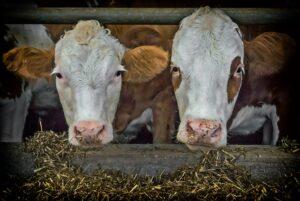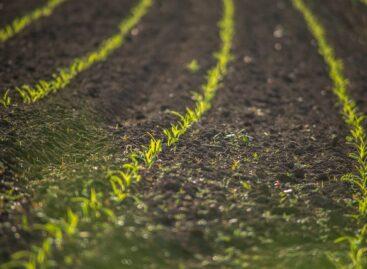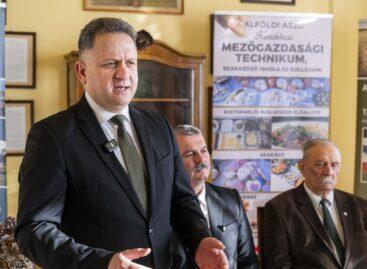Information sheet on the support of production-related dairy cows
One of the most important pillars of the domestic agricultural support system is the title group of subsidies linked to production. This is one of the most targeted types of intervention in the support system. From the cultivation of vegetables and fruits to the animal husbandry sectors, as well as the cultivation of protein plants that can partially supply them with fodder, it exerts its income-supplementing and risk-reducing effect very widely.

(Photo: Pixabay)
Compared to the previous period, the European Commission made the continuation of these subsidies subject to much stricter conditions. After the plant cultivation rights involved, the purpose of this information is to show how the creation of consistency with the water framework directive – as a new EU requirement – appears in the national legislation, and what practical implications it will have during the inspection and evaluation of requests for subsidies for dairy cows tied to production. Inspections can begin in January.
History
In the EU legislation laying the foundations for the new subsidy system starting in 2023, a new requirement appears that the conditions for production-related subsidies must be in line with the objectives of the Water Framework Directive. For this reason, starting this year, the authorities will investigate compliance with the regulations guaranteeing the protection of water quantity and quality within the framework of targeted on-site inspections. During the negotiations with the European Commission, it was achieved that the required additional control should only be applied to a narrow range of legal titles, so it does not have to be applied to the beneficiaries of the legal titles of grain and fibrous protein, industrial oilseeds, and ewes, ewes and fattened bulls. For the sake of clarity, the relevant titles are the following: sugar beet cultivation, rice cultivation, vegetable crop cultivation, industrial vegetable crop cultivation, extensive and intensive fruit cultivation, and support for dairy cows.
New conditions for subsidies linked to production
In order to maintain subsidies linked to production, the European Commission has therefore requested additional guarantees from the member states, but it is important to emphasize that these do not require the fulfillment of new conditions from those applying for subsidies, but only represent an additional level of control with regard to farming practices that comply with the permits already issued. Establishing consistency with the Water Framework Directive is a task for the Member States, and does not affect the eligibility conditions to be fulfilled by the beneficiaries. In the case of the mentioned crop cultivation rights, the emphasis is on the quantitative protection of water, while in the case of dairy cow husbandry, the emphasis is on the qualitative aspect of water.
How is all of this integrated into the process of checking the legal title of dairy cows tied to production?
During application processing, the Hungarian State Treasury (MÁK) uses, on the one hand, the results of the environmental protection, soil protection, water protection and water authority’s inspections carried out under its own authority, and on the other hand, the results of its own inspections. With the guidance of the MÁK, the competent county government offices carry out on-site and document-based inspections. In the case of the farmers who submitted the application and were designated for on-site inspection – in relation to the milk production activity affected by the production-related subsidy application – the following are examined: · Is the activity of the milk producer submitting the application subject to a permit? If so, does the producer have the necessary license? · On the basis of the facts/circumstances observed during the on-site inspection, can it be established that the practice is significantly different from what is contained in the permit(s) and thus poses a serious risk to the quality of the water? Since these regulations can differ significantly from breed to breed, the checks can also be carried out specifically for the given customer. This includes the physical examination of documents and manure storage systems available on site. If the on-site inspector finds conditions that pose a serious risk to the quality of the water in the inspected animal farm/breeding, he must document this in a written statement or with photos taken on the spot.
Finally, it is important to highlight the following:
1) The additional inspection required by the Commission does not mean that the subsidy for dairy cows tied to production can only be requested with a permit.
It only means that attention must also be paid to this aspect during the examination of farmers designated for on-site inspection.
2) It is important to point out that if the customer is entitled to continue his milk production activities without a permit, it must be considered during the inspection that his activities do not pose a serious risk to the quality of the water.
3) Exclusion from the subsidy can only take place if the practice endangering the water quality was carried out in connection with the keeping of animals affected by the direct subsidy tied to production, and this activity poses a serious risk to the water quality.
The detailed rules can be found in Regulation No. 17/2023 on the rules for the use of production-related direct subsidies.
(IV. 19.) AM decree 5-8. § included.
AM
Related news
Agricultural vocational training also places great emphasis on irrigation development
🎧 Hallgasd a cikket: Lejátszás Szünet Folytatás Leállítás Nyelv: Auto…
Read more >Related news
Nestlé to sell remaining ice-cream assets but commits to Froneri venture
🎧 Hallgasd a cikket: Lejátszás Szünet Folytatás Leállítás Nyelv: Auto…
Read more >40 secure jobs, sustainable solutions – new BURGER KING® in Csepel
🎧 Hallgasd a cikket: Lejátszás Szünet Folytatás Leállítás Nyelv: Auto…
Read more >









